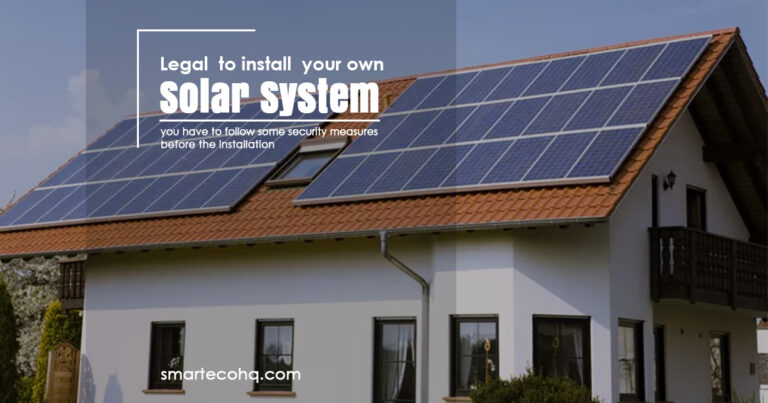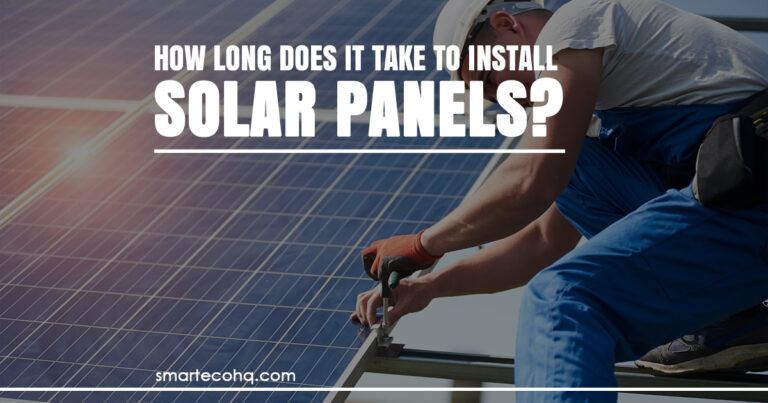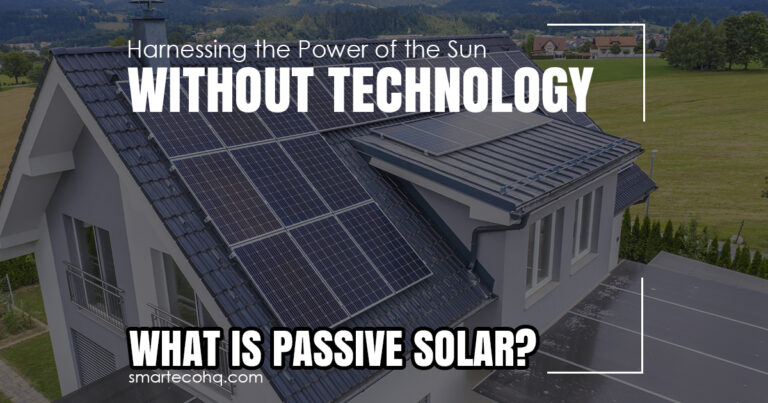Leasing Land for Solar Farms: A Guide to Making the Right Decision
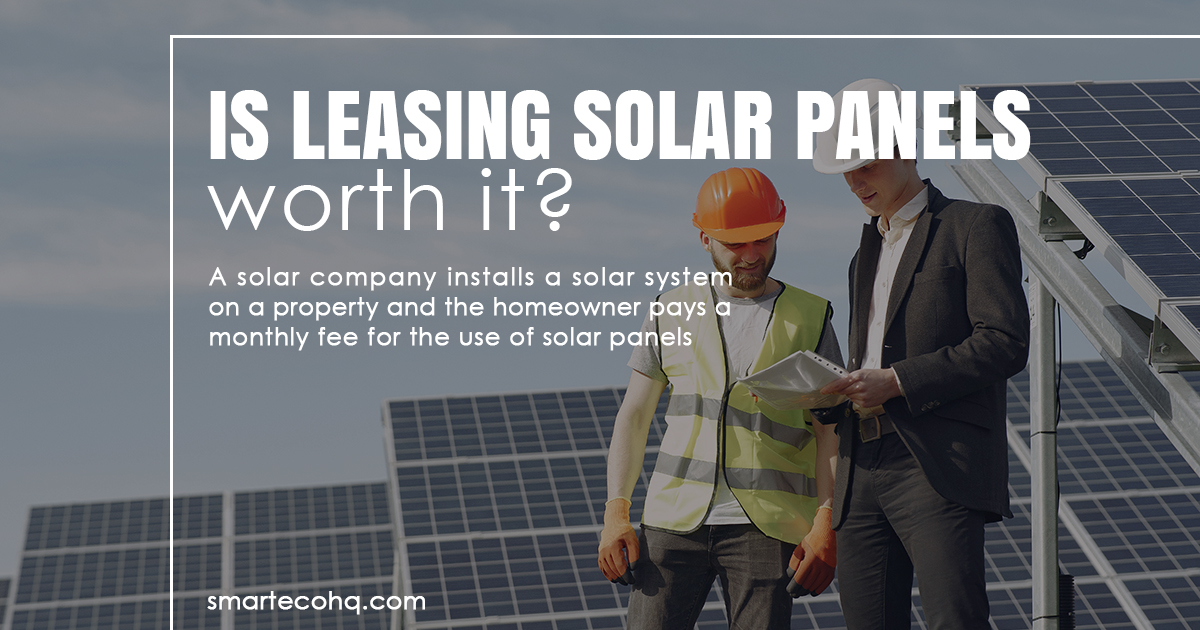
Ready to embrace a sustainable future? Learn how leasing land for solar farms can help. Our guide has all the information you need. Click to start!
What is Leasing Land to Solar Farms?
Leasing land for solar farms entails renting a section of property to a solar energy firm in order for them to install solar panels and generate electricity. Solar farms are large-scale installations made up of multiple solar panels installed on a framework and connected to inverters and transformers that convert solar energy into usable electricity.
The leasing agreement spells out the terms and circumstances of the partnership, such as the quantity of land being leased, the length of the lease, the lease payments and any additional responsibilities or obligations shared by the landowner and the solar energy firm.
The Pros and Cons of Leasing Land for Solar Panels
Landowners may find leasing land for solar panels to be an attractive venture, but there are some potential negatives to consider. Here are some of the advantages and disadvantages of leasing land for solar panels:
Pros:
Additional Money:
Leasing land for solar panels can be a fantastic way for landowners to create additional income. Lease payments can vary depending on a variety of circumstances, but for large solar farms, they can be substantial.
Environmentally Friendly:
Solar Energy is a clean, renewable source of energy that emits no harmful emissions. Landowners can contribute to a more sustainable future by leasing land for solar panels.
Minimal Upkeep:
Once the solar panels are erected, the solar farm operator is responsible for their maintenance and upkeep, allowing landowners to enjoy the benefits of solar power.
Long-Term Contracts:
Solar farm lease agreements are typically long-term (20-30 years), providing landowners with a consistent stream of income over a lengthy period of time.
Cons:
Reduced Land Use:
When property is leased for solar panels, it can no longer be used for other purposes. This can be a disadvantage for landowners who have future plans for the land.
Visual Impact:
Solar farms can be huge and aesthetically impactful, which might be a worry for landowners who value their property’s aesthetics.
Limited Flexibility:
Landowners may have limited freedom to make alterations to their property once a lease agreement has been signed. For example, they may not be able to build on the land or make other changes without the permission of the solar farm operator.
Uncertain Income:
Lease payments, while large, are not guaranteed. The income gained by leasing property for solar panels may be influenced by a number of factors, including changes in energy prices and government policies.
How to Lease Your Land to a Solar Farm?
Leasing your land to a solar farm can be a great way to make money while also helping to create a more sustainable future. The following are the fundamental steps in leasing your land to a solar farm:
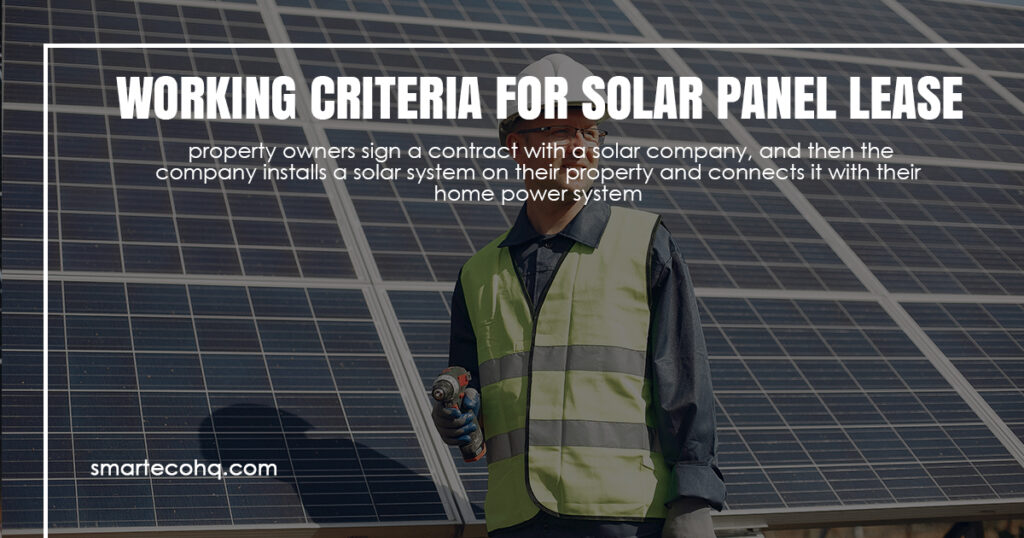
If it’s suitable for farming.
You must first determine whether your land is suitable for a solar farm installation before leasing it to one. Solar farms take up a lot of space and should ideally be located in areas where there is plenty of sunlight. If your property is heavily shaded or has a lot of trees or buildings nearby, a solar farm may not be a good fit.
Investigate Solar Farm Operators
After determining that your property is suitable for a solar farm, the next step is to look into solar farm operators. To begin, conduct an online search for solar farm operators in your area. You can also seek advice from your local government or utility company.
Contact Solar Farm Operators
Once you’ve narrowed down a few potential solar farm operators, contact them to express your interest in leasing your land. Prepare to provide basic details about your property, such as its size, location, and accessibility.
Examine Lease Agreements
If a solar farm operator wants to lease your land, they will send you a lease agreement to review. It is critical to thoroughly review the lease terms,including the lease length, rent payments, and any other responsibilities or obligations you may have as the landowner.
Discuss Terms
If you are unhappy with any of the lease terms, you can negotiate with the solar farm operator. Remember that lease agreements are typically for a long period of time (20–30 years), so make sure you are comfortable with the terms before signing.
Sign the Lease Contract
It is now time to sign the lease agreement after you have reached an agreement with the solar farm operator. Before signing the lease, make sure you fully understand the terms and consult with a lawyer if you have any concerns.
Setup and Operation
Following the signing of the lease agreement, the solar farm operator will begin the installation of the solar farm on your property. After the installation is completed, the solar farm operator will be in charge of the farm’s operation and maintenance.
Overall, leasing land for solar panels can be a terrific way for landowners to earn extra money while also helping to create a more sustainable future. However, before entering into a leasing agreement, it is critical to thoroughly analyze the potential negatives to ensure that it is the correct selection for your specific scenario.
FAQs
Why would someone lease land for a solar farm?
Leasing land for a solar farm can be a beneficial arrangement for landowners. They can earn a steady income by leasing their land to solar developers or energy companies for the purpose of installing and operating solar panels. It allows landowners to make productive use of their land while contributing to renewable energy generation.
How long is a typical lease agreement for a solar farm?
The length of a lease agreement for a solar farm can vary depending on various factors, such as the preferences of the landowner and the requirements of the solar developer. Generally, lease agreements can range from 20 to 40 years, allowing the solar developer enough time to recoup their investment and generate a return on it.
What are the financial benefits of leasing land for a solar farm?
Leasing land for a solar farm can provide several financial benefits. Landowners receive regular lease payments from the solar developer, which can provide a stable source of income over the lease term. Additionally, landowners may benefit from potential increases in property value, as solar farms often enhance the value of the land.

